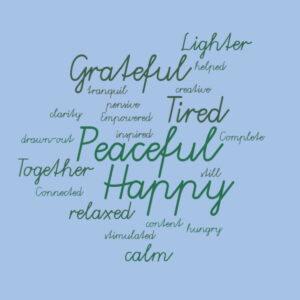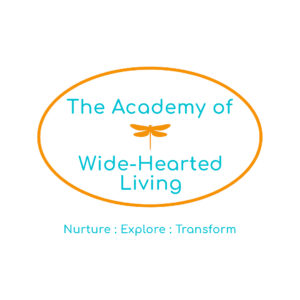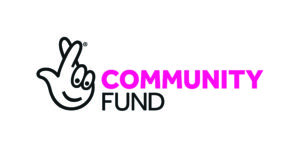Wellbeing for Changemakers was a six-week online programme from the Network of Wellbeing and the Academy of Wide-hearted Living, with support from the National Lottery Community Fund. It explored the benefits that simple creative practices such as mindfulness, meditation, physical activity and even doodling can have in managing stress and preventing burnout. Here, Roger Higman explains what went on.
___________________________________________________________________________________________________________________________________________________________________________
Wellbeing for Changemakers was a six-week online programme run by the Network of Wellbeing and the Academy of Wide-hearted Living. Supported by the National Lottery Community Fund, it comprised a mix of short talks, practical exercises and discussion that explored topics like stress, burnout and how we can be empowered to manage our wellbeing. Toolkits were sent out after each session so that participants could reinforce their learnings.
Melissa Noble, of the Academy of Wide-hearted Living, who led the programme, says “self-awareness is the key to better wellbeing”. We can use simple techniques like What Three Words? to check our mood and tools such as the online Warwick-Edinburgh mental wellbeing questionaire and the Maslach burnout inventory for deeper, more infrequent assessments.
Meanwhile, simple activities like regular breaks for meditation and physical exercise can help us get through the working day – especially for those in desk-bound jobs – while creative exercises like mindful doodling are perfect for breaking a negative thought pattern. And greater understanding of the way we behave, such as through Stephen Karpman’s Drama Triangle can help us reevaluate and improve our relationships.
See here for a specimen toolkit which illustrates some of the activities undertaken (and here for a printer-friendly version).
Altogether, over 150 people registered to attend some or all of the sessions. Feedback was positive with respondents awarding the sessions 4.5/5 and every respondent said that they’d recommend the sessions to a friend. Compilations of participants’ What Three Words? responses (see below) showed the improvement in mood by the end of each session.

And participants were fulsome in their praise. “Melissa was a calming and fantastic facilitator” said one. Her “manner, skills and competencies were outstanding” said another.
Or as one respondent put it: “I really liked that at the end of the session I felt better than at the start. In particular, even though we finished at 9pm, I felt relaxed and ready to go to sleep”.


